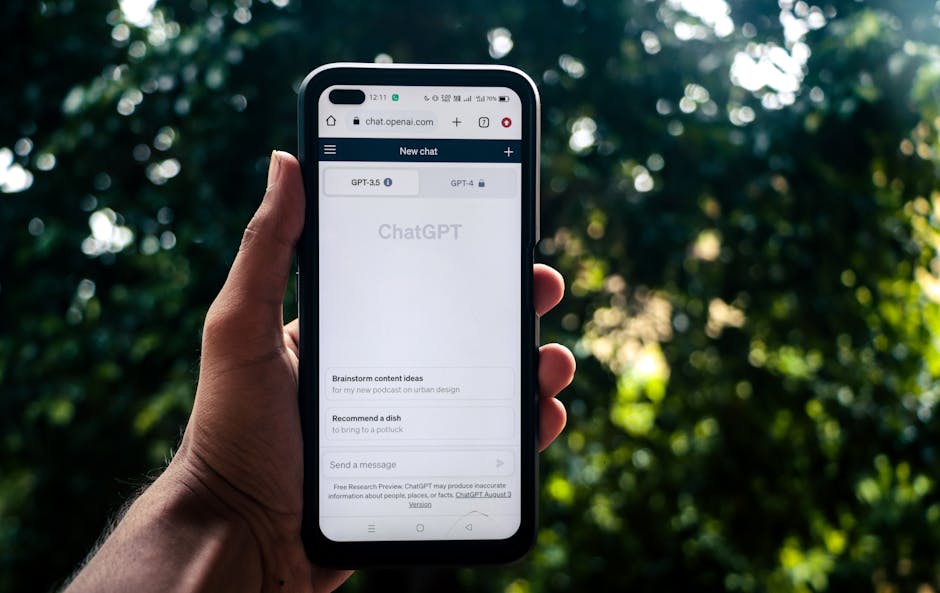The landscape of search is transforming at breakneck speed. At Novah Media, we’ve spent years helping businesses adapt to Google algorithm changes, the explosion of voice search, and the rise of mobile-first browsing. But 2025 brings perhaps the most dramatic change yet: the evolution from classic keyword-based SEO to Generative SEO, driven by AI-powered search engines like ChatGPT, Copilot, Gemini, and Google’s new AI summaries. This shift isn’t just about technology-it’s about how your customers find and trust you online.

What Exactly Is Generative SEO?
Generative SEO (sometimes called Generative Engine Optimization or GEO) means optimizing your digital presence so that AI search systems-including conversational bots and AI-powered summaries-actually understand, trust, and cite your business. Unlike old-school SEO, where ranking on page one of Google was the pinnacle, the game now is earning a mention (sometimes without a clickable link) directly within AI-generated search responses.
- Classic SEO gets your page ranked for keywords that people type or say (“best pet salon in Phoenix”).
- Generative SEO ensures your expertise and brand are understood by AI systems so you’re included in conversational answers to intricate, multi-part user queries.
Why Businesses Need Generative SEO in 2025
We’re all aiming to be where customers get answers. With “zero-click” searches now common, users often get what they need-concise, AI-written summaries-directly on ChatGPT, Gemini, and Google’s results pages. If your business isn’t the cited brand, you’re simply not in the conversation. That means no traffic, no leads, no trust signals.
- AI engines often summarize or cite only the most credible and contextually relevant sources.
- Being left out isn’t just about lost traffic-it chips away at your brand’s authority, especially as these engines power consumer assistants, smart devices, and business applications.
- Conversely, being the cited expert gains you reputation, visibility, and often, traffic from users seeking deeper details.
Generative SEO vs. Traditional SEO: What’s the Real Difference?
| Traditional SEO | Generative SEO (GEO) |
|---|---|
| Focuses on keyword phrases, metadata, backlinks | Focuses on in-depth topic authority, context, structure, and trust signals AI recognizes |
| Ranks individual pages for different queries | Optimizes networks of content (content clusters) that answer user journeys and nuanced questions |
| Manual updates and periodic re-optimization | Continuous content audit, enhancement, and adaptation based on AI output and new search experiences |
| Metrics: rankings, organic clicks, bounce rate | Metrics: brand mentions/citations in AI, sourced answers in summaries, trust indicators |
The Building Blocks of a Successful Generative SEO Strategy
At Novah Media, our unique approach draws on what’s worked for our diverse client base and the latest research on AI search. Here’s how any business-big or small-should adapt in 2025:
1. Deep-Dive into Content Clusters-Don’t Just Answer, Own the Topic
- Create “pillar” resources, then build detailed sub-pages that handle every question, scenario, and pain point your customer has. Don’t stop at what’s already ranking-instead, use tools and internal research to anticipate what generative AIs might want to include in their answers, covering both beginner and advanced queries.
- Example: If you’re a home remodeling business, your hub content isn’t just “Remodeling Services in Denver.” You’ll also need dedicated, well-structured pages for “How to Budget for a Remodel,” “Ultimate Checklist for Kitchen Renovation,” and “What to Know About AI-Driven Interior Design in 2025.” Each supporting article links to the hub and one another, forming a web of topical expertise.
2. Make Your Content Machine-Readable with Structured Data and Schema
- Generative AIs pull in content that’s straightforward to interpret. That means using proper HTML tags-logical H2/H3 headings, well-organized bullet points, concise definition lists, and, wherever relevant, schema markup (especially for FAQs, how-tos, reviews, and people).
- Add organization schema to your About page, mark up your services, and use FAQ schema throughout. This tells AI (and Google) not just what you do, but how you do it, for whom, and why you’re credible.

3. Build Brand Authority Across the Web
- AI engines value signals that you’re trusted everywhere your niche operates. Secure high-quality, unbranded mentions (even with no links!) in credible directories, well-known trade publications, and relevant business lists. Optimize your Google Business Profile and all third-party references to your brand.
- Participate in community Q&A sites or industry roundups, and be clear about your expertise and business location or specialties.
- Incorporate expert opinions, research-based insights, and clear references to your credentials so the AI can corroborate your authority against other cited sources.
4. Leverage AI for Content Research and Iteration
- AI-powered tools can help identify content gaps, suggest additional questions, and even forecast what future queries might emerge.
- Create drafts, outlines, or even fully-formed articles with AI assistance, then add your unique experience, examples, and local know-how. (AI can’t mimic your real voice, but it can speed up research and expansion immensely.)
- Run your finished pages through AI QA tools to spot ambiguities or technical issues that might confuse search bots.
5. Monitor Where and How You’re Cited-Then Adapt
- Track AI overviews and responses on major platforms. Use analytics to determine whether (and how often) your brand is mentioned, summarized, or linked.
- Adjust titles, content structure, and depth based on what gets cited or ignored. Don’t hesitate to revisit older pages-keeping your knowledge current signals to AI that you’re actively leading your space.
What Makes Generative SEO Personal for Us at Novah Media
For us, it’s about making sure digital marketing isn’t just a technical tactic, but a way to earn real authority-online and offline. We see Generative SEO not as a trend, but as a fundamental paradigm shift in how trust and expertise are measured in the digital world. It’s about:
- Owning your narrative: If AI gets information wrong about your business, it’s an uphill battle to correct that. Anticipate, answer, and clarify-directly, on your own site.
- Long-term credibility: Consistency across your website, directories, social media, and expert commentary pays off. It’s not enough to “trick the system”-you have to be the system’s go-to resource.
- Transparency and reliability: Well-structured, forthcoming information (including sources, data, and examples) will almost always outperform surface-level, keyword-stuffed content in AI-generated answers.
Practical Next Steps: How to Start Your Generative SEO Journey
- Audit your existing content for topical completeness, clarity, and depth. Are you the best source for your core topics?
- Reorganize your site structure for content clusters, ensuring it’s easy for both humans and machines to follow a logical path from basic to advanced knowledge.
- Update your technical SEO: Structured data, fast loading, mobile-first design, and accessible navigation are now table stakes for generative engines.
- Get your brand mentioned-organically-wherever your customers and industry gather online.
- Experiment with AI tools but always add your unique knowledge, regional expertise, and customer insights. Don’t let the robot do all the talking!
Common Questions We Hear About Generative SEO
- Will backlinks still matter? Yes, but mentions and authority cues (brands, credentials, citations) matter just as much for AI systems. It’s a holistic view.
- Do we need to publish more? Quality and depth beat volume. It’s better to be the “answer” for a topic than to flood your site with thin, repetitive copy.
- How do we know if our content is being cited? Monitor search experiments, AI summaries, and visibility analytics. Our team can help set up custom monitoring.
- Should we use AI to write everything? Use AI for research and scaling, but always apply your experience, and never sacrifice originality or accuracy.
Looking Ahead: The Future of SEO and Digital Marketing
As AI-powered search moves from novelty to norm, everyone from local retailers to global B2B brands will need a strategy grounded in trust, expertise, and adaptability. Generative SEO is your ticket to being not just ‘found,’ but respected and consulted-even when the query isn’t coming through a classic search box.
If you’re unsure where to start, need an audit, or want to discuss the nuances of Generative SEO for your specific industry, our team at Novah Media is always here to share our experience and help you build genuine online authority.

